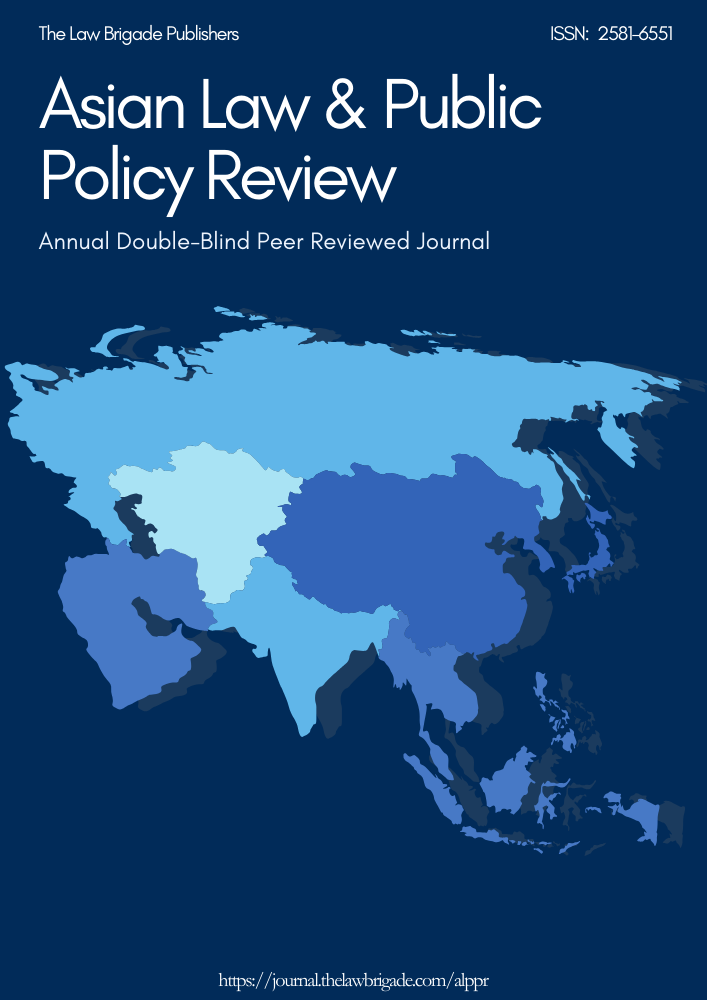ANTON PILLER AND ABUSE
Keywords:
Anton piller, injunction, infringement, premisesAbstract
An Anton Piller Order may comprise of an injunction to restrain infringement , permission to enter defendant’s premises to either take inspect and take inventory of documents and remove infringing goods, injunction to restrain defendants from disclosing contents of injunctions to third parties etc. The purpose of the order, as explained in Yusuf v Salama1 is to prevent obstruction of the danger of destruction of evidence. Though Templeman J expounded the concept in EMI v Pandit 2 , it was post the judgment in Anton Piller KG v. Manufacturing Processes3 that these orders took shape. The substantive standards for granting such orders were laid down in Anton Piller4 by Lord Denning and Lord Ormrod over which subsequent cases have been developed. The plain reading of the purpose of these orders themselves presents a scope for abuse sans regulation, especially in lieu of Puttasamy v Union of India 5 post which Right to Privacy has been included under Art 21 of the Constitution. The note tries to examine the nature of execution of such orders while giving due emphasis on the powers of the commissioners appointed to carry out such searches.
Downloads
Downloads
Published
Issue
Section
License

This work is licensed under a Creative Commons Attribution-NonCommercial-ShareAlike 4.0 International License.
License Terms
Ownership and Licensing:
Authors of research papers submitted to any journal published by The Law Brigade Publishers retain the copyright of their work while granting the journal specific rights. Authors maintain ownership of the copyright and grant the journal the right of first publication. Simultaneously, authors agree to license their research papers under the Creative Commons Attribution-ShareAlike 4.0 International (CC BY-SA 4.0) License.
License Permissions:
Under the CC BY-SA 4.0 License, others are permitted to share and adapt the work, even for commercial purposes, provided that appropriate attribution is given to the authors, and acknowledgment is made of the initial publication by The Law Brigade Publishers. This license encourages the broad dissemination and reuse of research papers while ensuring that the original work is properly credited.
Additional Distribution Arrangements:
Authors are free to enter into separate, non-exclusive contractual arrangements for distributing the published version of the work (e.g., posting it to institutional repositories or publishing it in books), provided that the original publication by The Law Brigade Publishers is acknowledged.
Online Posting:
Authors are encouraged to share their work online (e.g., in institutional repositories or on personal websites) both prior to submission and after publication. This practice can facilitate productive exchanges and increase the visibility and citation of the work.
Responsibility and Liability:
Authors are responsible for ensuring that their submitted research papers do not infringe on the copyright, privacy, or other rights of third parties. The Law Brigade Publishers disclaims any liability for any copyright infringement or violation of third-party rights within the submitted research papers.


